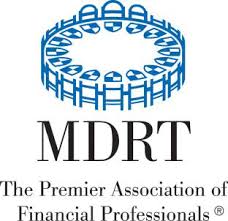What happens if you become disabled
If you become disabled and unable to work, you could start to feel the financial challenges right away, or at least within a short amount of time. Unfortunately, your everyday living expenses don’t stop if you become ill or injured – and due to your medical needs, you could face even more out-of-pocket expenses going forward.
Dipping into savings or selling assets for cash is typically only a short-term “solution” – and one that can cause the demise of your other financial goals, such as saving for retirement or building up a college fund for your children.
That’s why disability insurance is an essential component of any good, solid financial plan. The income benefits from this type of coverage can be used for paying your rent or mortgage, utilities, food, and other necessities. In addition, because you can rely on a steady stream of income with disability insurance, you can reduce stress and worry about your financial needs, and place more focus on your health and recovery.
There are many different types of disability insurance policies. So, making sure that you have the right coverage in place can make a big difference in terms of how much income you will receive, and how long it will continue to come in.
The most common types of disability insurance include:
- Group / Employer Sponsored Coverage <Links to all of these bullet pointed individual posts>
- Short Term Disability Insurance
- Long-Term Disability Insurance for Individuals
- Supplemental Disability Insurance
- Disability Insurance for Business Owners
- Disability Insurance for Key Persons
- Association Sponsored Long-Term Disability Coverage
- Business Overhead Insurance (Overhead Expense Insurance)
- Disability Buy Out Insurance
- Social Security Disability Benefits
We will explore each of these in more detail.
Group / Employer Sponsored Disability Insurance
In order to help employees with paying their living expenses in case of a disabling condition, many businesses offer group disability insurance coverage. These plans may include short-term and / or long-term coverage options.
In some cases, the employer pays the premium, and in others the employee pays. There are still other instances where the employer and the employee will split the premium payment. Depending on how the plan is set up, the funding for these plans may either be with pre-tax or after-tax dollars. The way that the premium is paid can determine whether or not the disability income benefits will be taxable when received.
Learn more about group or employer sponsored disability coverage. <Link to Group / Employer Sponsored Disability Insurance post>
Short Term Disability Insurance
Short-term disability insurance can help to replace a portion of your income if you are temporarily injured or ill and you are unable to work for a short period of time. This type of coverage generally has a short waiting period and will usually start to pay benefits within 14 days of the insured suffering a disabling condition. The income from a short-term disability policy will typically continue for up to one year.
Short-term disability coverage may be provided as part of an employer-sponsored benefits package. Typically, the amount of the income benefit that is paid out is between 40 and 60 percent of your gross income. In some cases, if the plan is part of an employee benefits package, the disabled employee may be required to use all of his or her sick days before the disability income starts.
Individual short-term disability insurance policies are also available. Similar to with employer-sponsored plans, these policies will pay a certain percentage of your income for a specified period of time.
Whether or not the short-term disability income benefits are subject to tax will depend upon whether the premium for the policy or coverage was paid with pre-tax or after-tax dollars. Learn more about the taxation of disability insurance benefits. <Link to Taxes and Disability Insurance post>
Learn more about short-term disability insurance, how it works, how much it costs, and how to qualify for this type of coverage. <Link to Short-Term Disability Policies post>
Long Term Disability Insurance for Individuals
Even if your employer offers disability coverage as a part of its employee benefit plan, the income that you’ll receive from it may not last as long as you need it to. It is also possible that if or when you leave your employer, you will lose your disability coverage altogether. That’s why having a “portable” individual long-term disability insurance policy can make sense.
As its name implies, a long-term disability insurance policy can provide income benefits for a longer period of time than short-term coverage. Depending on the plan you choose, you could receive disability income benefits for several years, or even until you turn age 67.
There are other benefits that long-term disability insurance can offer, too. For example, these types of policies can protect a higher percentage of your pre-disability earnings. They may also help to replace commission and / or bonus income, too.
Learn more about long-term disability insurance for individuals. <Link to Long Term Disability Insurance for Individuals post>
Supplemental Disability Insurance
A supplemental disability plan is designed for covering the “gap” between what you will receive from a long-term disability policy and what you actually need to maintain your lifestyle. Because the benefit amount that you receive from a long-term disability policy may not be enough, the money that you receive from a supplemental policy can help to essentially make up the difference.
Supplemental disability insurance can also provide you with needed cash flow while you wait for long-term disability benefits to begin. For instance, if your long-term disability insurance policy has an elimination period (i.e., a waiting period) of six months or a year, the income from a supplemental plan can help you to pay your bills and other expenses while you wait.
Learn more about supplemental disability insurance, how it works, and whether or not it may be a good option for you. <Link to Supplemental Disability Insurance post>
Disability Insurance for Business Owners
If you’re a business owner, being without income – even for just a short period of time – can have devastating financial consequences for yourself, your family, and your company. So, when it comes to disability insurance, it is important that you are well protected for both your personal and your business needs.
For instance, a personal disability insurance plan can provide you with income for paying your mortgage, car payment(s), food, utilities, and other needs. In addition, a business overhead insurance plan can cover what you need for the rent or mortgage on your company’s location, as well as provide funds for equipment and / or vehicle leases, utilities, and even your employee payroll.
If your business relies on one or more “key” people – such as a top sales rep – you can protect your company financially in the event that he or she becomes disabled and is no longer able to work. This can be accomplished through a key person disability insurance plan. Learn more about key person disability insurance. <Link to Disability Insurance for Key Persons post>
Learn more about disability insurance for business owners. <Link to Disability Insurance for Business Owners post>
Learn more about business overhead insurance. <Link to Business Overhead Insurance (Overhead Expense Insurance) post>
Disability Insurance for Key Persons
Most companies have one or more key individuals who are essential to the success of the business. This could be due to their superior sales skills, their expertise, and / or their important client or vendor relationships. But if a key person becomes disabled and is no longer able to work – even just temporarily – it can pose some significant financial challenges to the company.
Key person disability insurance can help to keep your company on track financially in the event of an executive or other important person becoming disabled. The benefits from a key person disability policy can be used for a variety of needs, such as the replacement of lost revenue, or even the cost of hiring and training a replacement.
Learn more about disability insurance for key persons. <Link to Disability Insurance for Key Persons post>
Association Sponsored Long-Term Disability Coverage
If you are a member of certain groups or associations, you may be able to purchase an association-sponsored long-term disability plan. Due to the “group” aspect, it is possible that insureds can secure a premium discount on the coverage. Likewise, the underwriting criteria <Link to How Disability Insurance Underwriting Works post> may be less stringent because the insurance company is essentially spreading the risk across numerous insureds.
There are many types of associations that offer disability insurance coverage. These may include industry associations – such as physicians or CPAs – as well as larger entities like AARP. Before you purchase an association sponsored disability plan, though, it is important to compare the benefits and the cost with that of an individual plan. In doing so, you may find that an individual disability policy costs the same – or even less – while also providing you with more flexibility and policy customization options.
Learn more about association sponsored long-term disability coverage and why it may or may not be a good alternative for you. <Link to Association Sponsored Long-Term Disability Coverage post>
Business Overhead Insurance (Overhead Expense Insurance)
Business owners can have a long list of financial responsibilities – and those don’t typically stop if you contract a disabling condition that keeps you away, even if its just for a short period of time.
There are any number of business related expenses that would still have to be paid in you became disabled, such as rent, utilities, and business insurance premiums, as well as the salaries of your employees. Because of that, a business overhead insurance policy is essential to ensuring that the business will continue to run seamlessly, even if you can’t be there.
Even if you already have a personal disability income insurance plan in place, a business overhead policy can ensure that you won’t have to deplete these benefits in order to keep your company running.
Learn more about business overhead insurance, how it differs from personal disability income coverage, and whether you’re a good candidate for this type of plan. <Link to Business Overhead Insurance (Overhead Expense Insurance) post>
Disability Buy Out Insurance
In some cases, when a business owner becomes disabled, he or she will not be able to return to work. If you’re the owner or a partner in a business, a disability buy-out insurance plan could provide your partners or other potential buyer(s) with the funds that are necessary to purchase your portion of the company.
This, in turn, can allow the remaining individuals to continue the company’s operations going forward once a fair market value for the business has been established. Because most small businesses simply don’t have the resources that larger companies have, disability buy out insurance can provide a good, solid contingency plan.
Learn more about disability buy out insurance. <Link to Disability Buy Out Insurance post>
Social Security Disability Benefits
While you can’t “purchase” a Social Security disability income plan, it is possible that you may qualify for these benefits – provided that you have enough “quarters” of work in place, and that your condition meets Social Security’s definition of disability.
The Social Security Administration mandates that a long list of factors be met before an individual qualifies for disability benefits. For example, your condition must be considered severe, and you must not be able to perform the duties of any occupation – not just jobs that are in your specific industry or profession. There is also a long waiting period that must first be met before you will start receiving these benefits – even if you qualify for this coverage.
Because it is quite difficult to qualify for Social Security’s disability income benefits, these funds should not be relied upon as your sole source of disability coverage. Rather, having an individual disability insurance plan in place can provide you with more assurance that you – and those who rely on your income – will have a financial safety net.
Learn more about Social Security disability coverage, whether or not you qualify, and how much you may receive in benefits. <Link to Social Security Disability Benefits post>
Will You Be Able to Replace Your Paycheck If You Become Disabled?
Even if you become disabled and unable to work for just a short period of time, it can be financially challenging. If you have an emergency fund or other savings in place, these funds are typically intended to go towards other needs. So, dipping into these funds can cause additional financial hardships down the road.
But the right type of disability insurance coverage can help you to ensure that your ongoing living expenses can be paid, in turn, allowing you to place less focus on monetary needs, and more focus on your recovery.
So, if you suffered a disabling illness or injury, how much of your income would be at risk?
If you’d like to map out a plan for insuring your most important asset – the ability to earn an income – or if you would simply like to compare quotes on disability insurance coverage, <link to quote engine> just <Contact Us> and we will help you determine the best option for your specific needs.
Types of Disability Insurance Policies FAQ
Does group disability insurance provide enough coverage?
Although a group disability insurance plan can offer you some assurance of income in case you are unable to work, more often than not group plans won’t provide nearly enough coverage. This is particularly the case if you have a long-lasting disability.
In most cases, an employer-sponsored disability insurance plan will offer between two and three years’ worth of protection – and the benefits that are paid out will oftentimes only replace about 40 to 60% of your income.
So, what happens if you endure a condition that renders you disabled for the remainder of your life?
This is where an individual disability insurance policy can offer the coverage that you need. An individual long-term disability insurance policy can be designed to pay out for a certain number of years, or even until you reach retirement age.
Learn more about group disability insurance coverage <Link to Group / Employer Disability Insurance post> and about individual long-term disability insurance coverage <Link to Long Term Disability Insurance for Individuals>.
Do you have to pay tax on disability insurance benefits?
You may or may not be obligated to pay tax on disability income insurance benefits. There are actually several factors that will determine whether or not your disability benefits are taxed, as well as how much could be taxable.
In short, though, if the premiums for your disability insurance coverage are paid with after-tax dollars (i.e., you pay for this coverage yourself using net income), then the benefits that you receive will be tax-free.
Alternatively, if you pay for your disability insurance coverage with pre-tax dollars (i.e., your premium is taken out of your paycheck before the income is taxed), then you will be responsible for paying tax on the benefits received.
In some cases, if your disability insurance coverage is offered as part of a group benefit plan, you and your employer may split the cost. If this is the case, then only a portion of your benefits will be taxable. (The taxable portion will correlate with the percentage of the premium that was paid by your employer).
Learn more about how disability insurance benefits may be taxed. <Link to Taxes and Disability Insurance post>
If your employer pays for an individual disability insurance policy on you – which may be the case if you are an owner or executive of the company – the rules regarding benefit taxation can differ somewhat. <Link to Disability Insurance for Key Persons>
For instance, in this case, if your employer receives the benefit from the coverage, then the premium will not be deductible to the company, and in turn, the benefit that is received will not be considered taxable. Learn more about employer-sponsored disability insurance plans. <Link to Employer Sponsored Disability Insurance>.
How long do disability insurance benefits last?
The duration of disability insurance benefits can be based on a number of factors – primarily whether the plan is short-term or long-term. For instance, short-term disability insurance coverage will typically pay benefits for between just a few weeks or months, up to one year. <Link to Short Term Disability Insurance post>
On the other hand, long-term disability insurance benefits can pay for a certain number of years, or even until you reach age 67. <Link to Long Term Disability Insurance for Individuals post>
How much does disability insurance cost?
Just like with any other type of insurance coverage, there are several factors that will determine how much disability insurance costs. These criteria can include:
- Your age
- Your health
- Pre-existing conditions
- Amount of coverage
- Duration of coverage
- Elimination period (waiting period before benefits begin to pay)
If you have disability insurance coverage through your employer or an association, it is possible that you will get a discount on your premium. (But be careful here because even though you might be paying a lower amount of premium, group and association plans will oftentimes not provide enough coverage for your needs). <Link to Group / Employer Disability Insurance and link to Association Sponsored Long Term Disability posts>
How much disability insurance can you get?
Disability insurance coverage is designed to help you replace your income in the event of a disabling condition that renders you unable to work. With that in mind, individuals should not be able to “profit” from these benefits.
Because of that, most insurance carriers will only provide up to 60% of the insured person’s wages. This benefit limit can also help insurers to cut down on fraudulent disability insurance claims.
There are, however, some strategies that could be put in place for receiving more income – which can be particularly beneficial for higher wage earners and / or for those who are paid primarily via commissions or bonuses. One option is to purchase a supplemental disability insurance plan. <Link to Supplemental Disability Insurance post>

 Speak with an experienced advisor!
Speak with an experienced advisor! 




